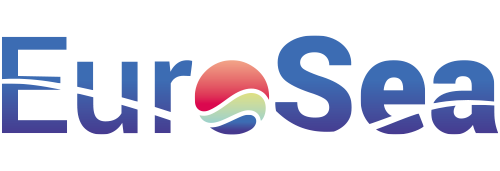EuroSea works to improve the European ocean observing and forecasting system in a global context.
Why is this necessary? Well, oceans are an essential part of the Earth’s system. However, we still have fundamental gaps in our ocean observing and forecasting capabilities. These gaps limit our capacity to sustainably manage our activities and sustain ocean resources.
Ocean observing is big science and simply can’t be implemented by individual nations. We urgently need to ensure high-level integration for coordinated ocean observing that can be sustained in the long term.
That’s why EuroSea works towards two goals. First, to deliver ocean observations and forecasts to advance scientific knowledge about ocean climate, marine ecosystems and their vulnerability to human impacts. Second, to demonstrate how the ocean is an essential part of an economically viable and healthy society not only today but also in the decades to come.
Our Vision: Advancing research and innovation towards a user-focused, truly interdisciplinary, and responsive European ocean observing and forecasting system, that delivers the essential information needed for human wellbeing and safety, sustainable development and blue economy in a changing world.
Our Mission: Co-designing European ocean observing and forecasting services and products that deliver information and support decision-making in the areas of climate, coastal and maritime activities, and ocean health.
Our Objectives:
- Strengthening European ocean observing and forecasting as an integrated entity within a global context;
- Improving the design for an integrated European ocean observing and forecasting system for the European seas and the Atlantic, including the deep sea;
- Improving and enhancing the readiness and integration of ocean observing networks;
- Enabling FAIR data, supporting integration of ocean data into Copernicus Marine Service, EMODnet and SeaDataNet portfolios;
- Delivering improved forecasts and new synthesis products by better use of data in models;
- Developing novel services, demonstrating the value of the ocean observing system to users;
- Supporting integrated, sustainable and fit-for-purpose ocean observing system by engaging with a range of end-users and other stakeholders.
